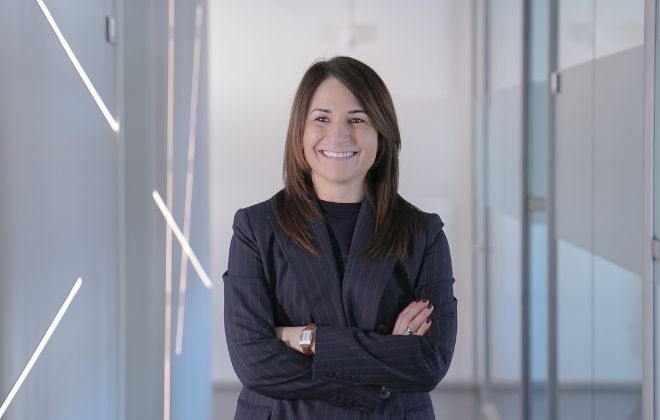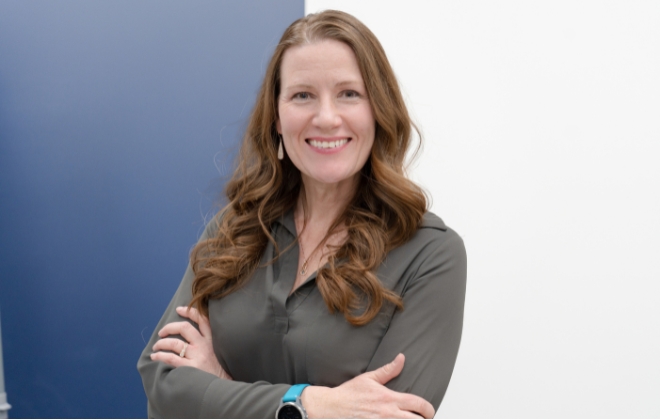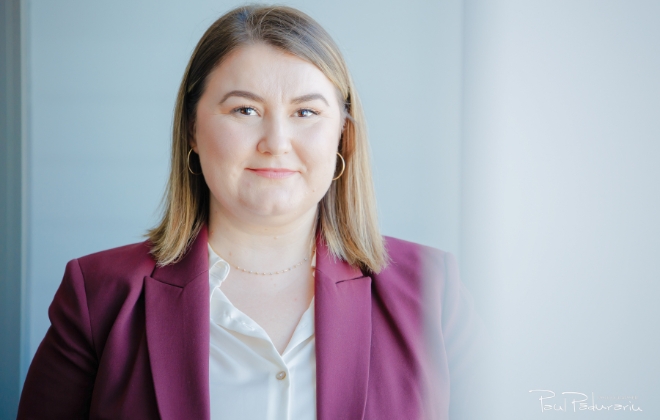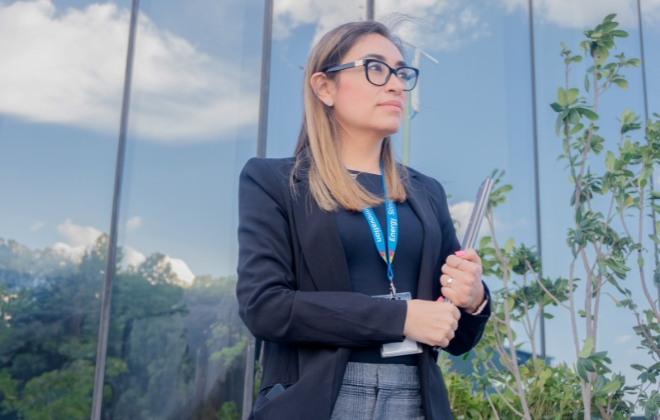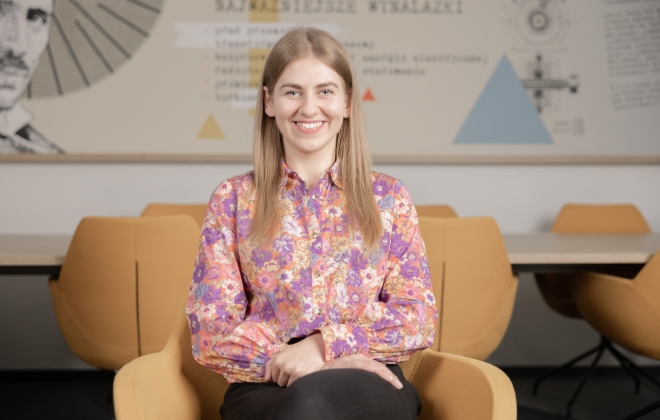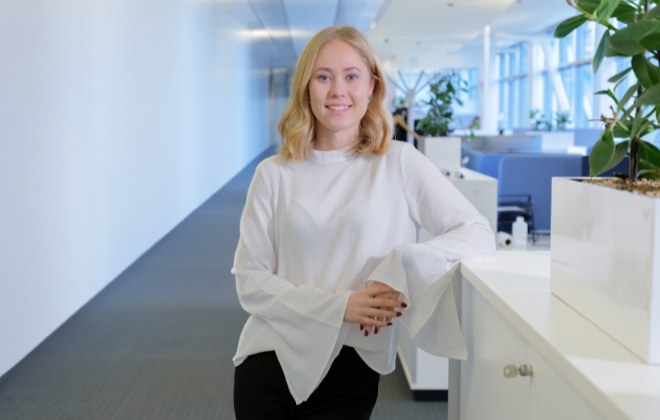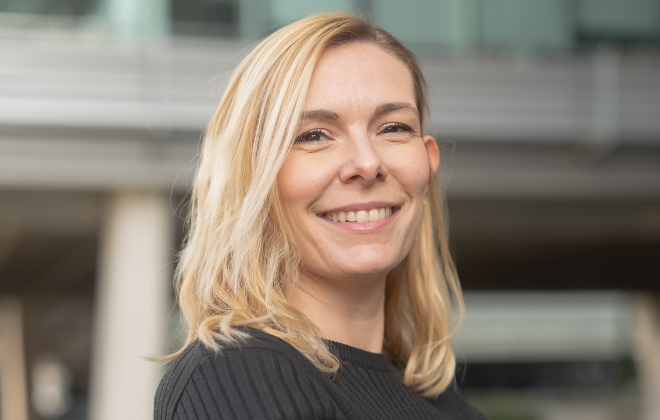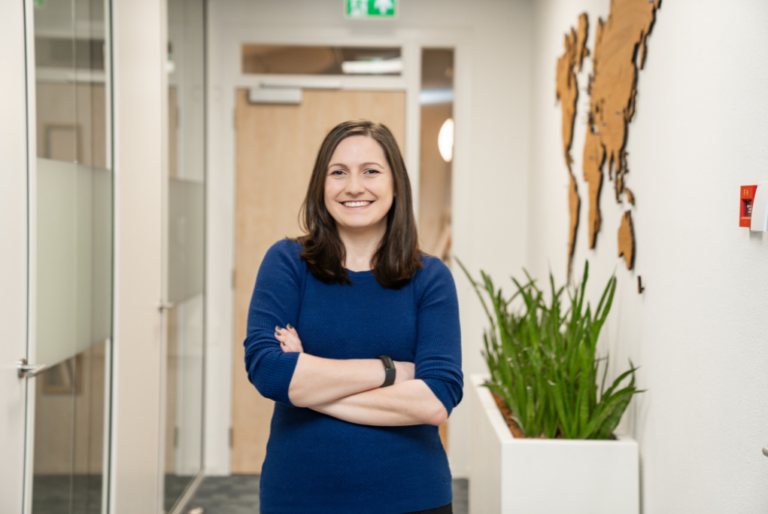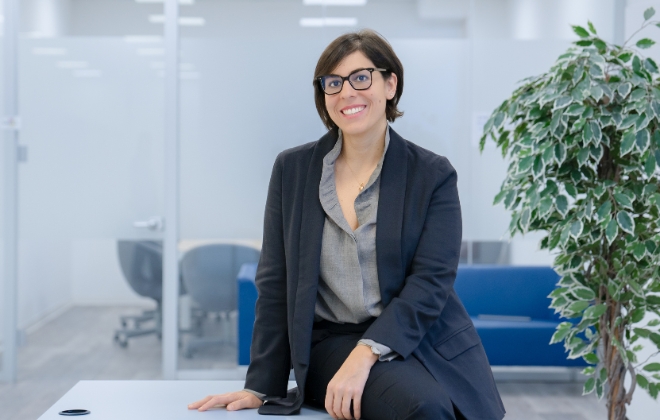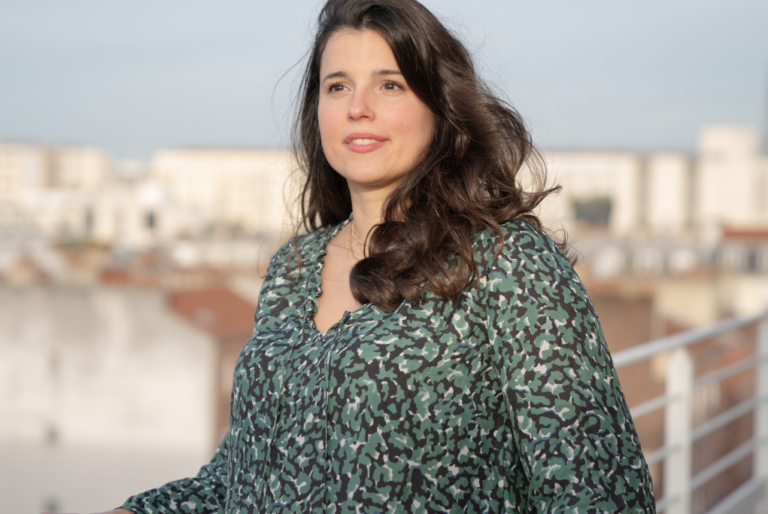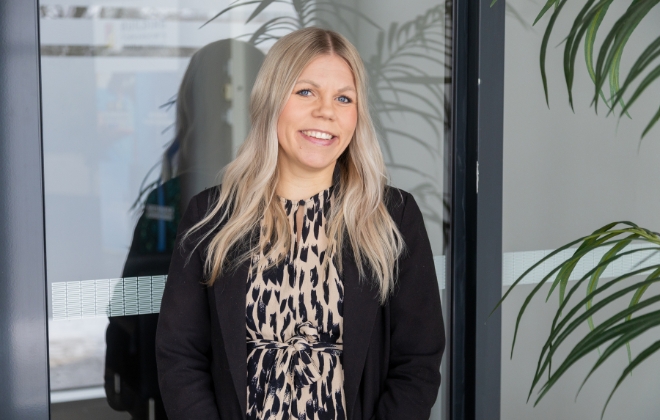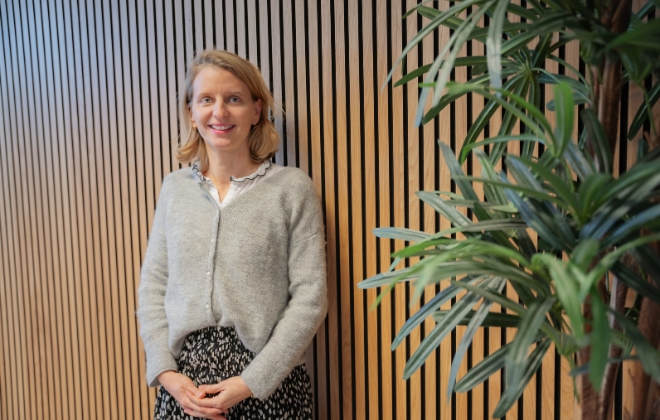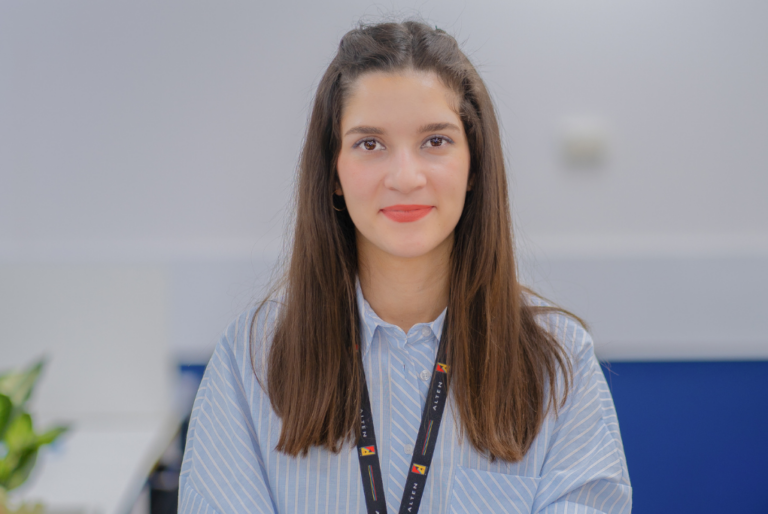Stories Of Women in Engineering – Marie-Emilie Rebattu-Forest
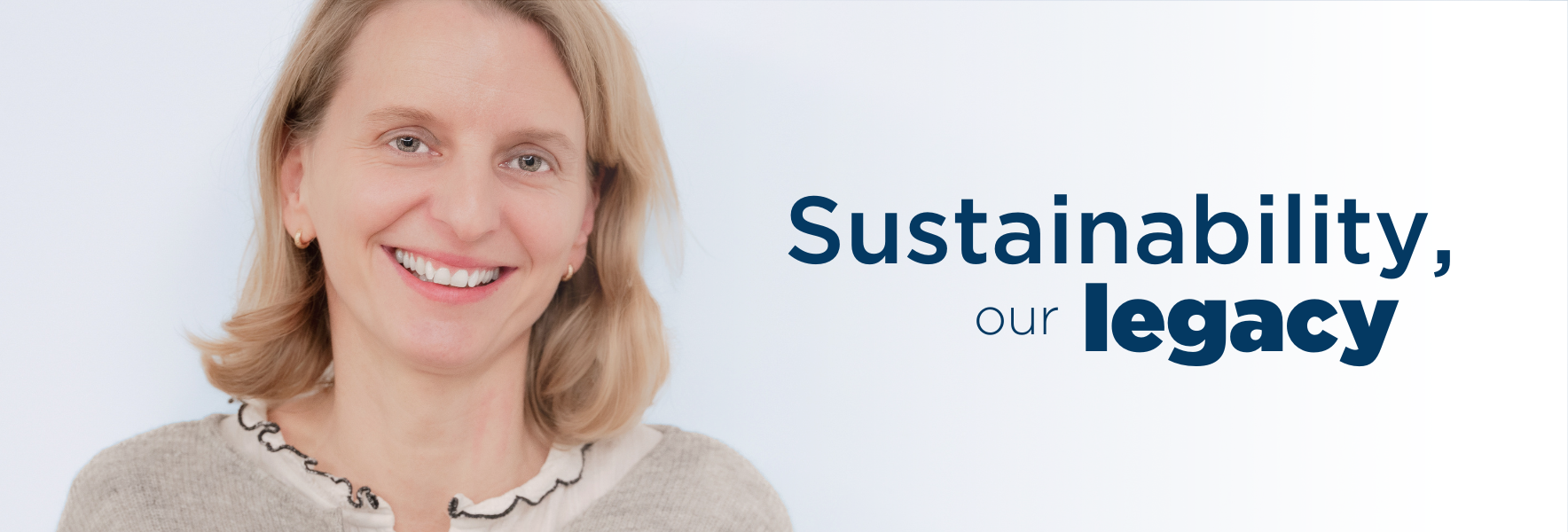
Interview with Marie-Emilie Rebattu-Forest
Hello, my name is Marie-Emilie. I am a project manager in the technical department at ALTEN, Belgium.
How did you develop your interest in engineering? What factors influenced your decision to pursue a career in this field?
In high school, I liked science subjects – mathematics, physics, and biology. I am still very interested in understanding how those fields evolve. I also like problem-solving, finding solutions when something is not working. I like reading scientific journals about innovations. That’s why I naturally decided to become an engineer.
What role has ALTEN played in your professional development? How has the company supported your growth and advancement in your career?
I have spent a large part of my career at ALTEN. I have been working here for more than 17 years. I started as a developer, then I took up the role of functional analyst and then became a project manager. As a consultant, I have had the opportunity to evolve thanks to the trust that I have gained both within ALTEN and at the client level. Currently, I am working part-time in the technical department. ALTEN is very accommodating in allowing me to reconcile my professional and personal life – to have a better work-life balance.
Can you describe your role and responsibilities?
As an IT project manager, I am responsible for the technical and financial follow-up of IT projects. I am in charge of ensuring my team’s efficiency and the project’s profitability to respond to our clients’ needs. I enjoy helping new clients achieve their projects by finding the best solution at the best cost and with the highest quality. I like being in contact with young engineers, coaching them and helping them grow.
How do you balance technical expertise with the ability to inspire and motivate your team?
Good managers ensure cohesion in the team and leads it towards the expected outcomes. They must have good communication skills, be well organized, and have a positive team spirit. They should be uplifting towards their team and listen and support them when issues arise. A good manager is also someone who brings out the best in each member of their team. The manager helps the team members grow and improve their skills.
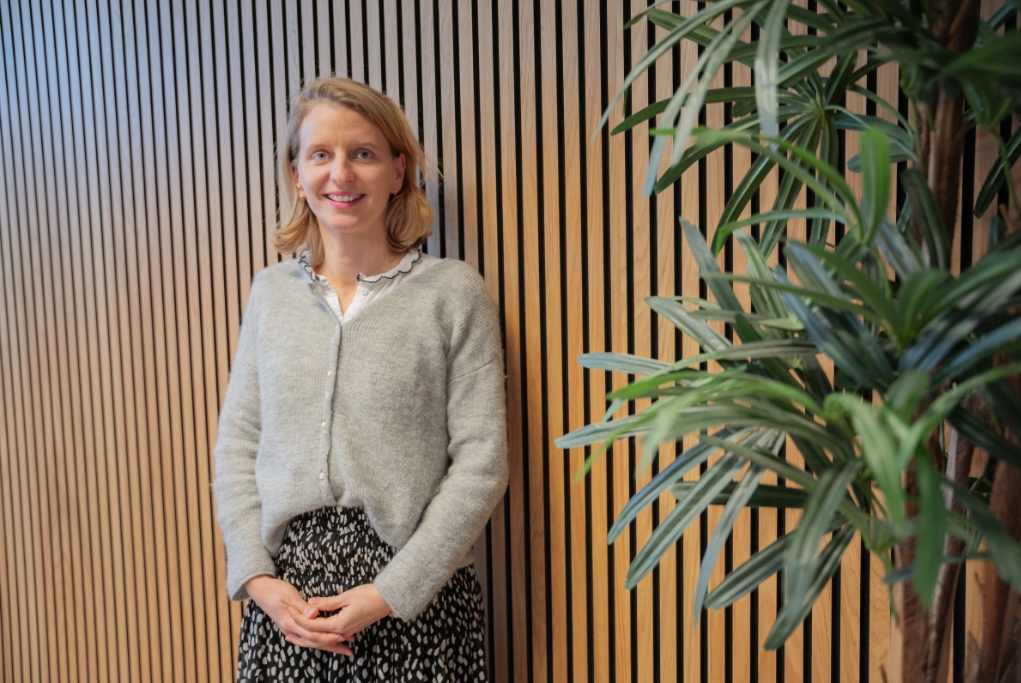
What is your vision of the place of women engineers in the professional world?
To be honest, the female presence in the IT industry is low. Women mainly occupy roles as functional analysts or testers, not usually as developers. But I think this can change. In the past years, I have encountered more and more women developers. The essential qualities needed in a developer are listening to needs, rigor, organizational skills and good communication. I found all these qualities in those women developers.
What are some of the most inspiring projects that you have worked on during your time at ALTEN?
The most challenging project I have worked on was a SharePoint migration for one of our customers. It was not the most appealing project but turned out to be very interesting in terms of methodology, helping the customer to communicate and inform their users, finding the right tools, and sorting through two thousand SharePoints.
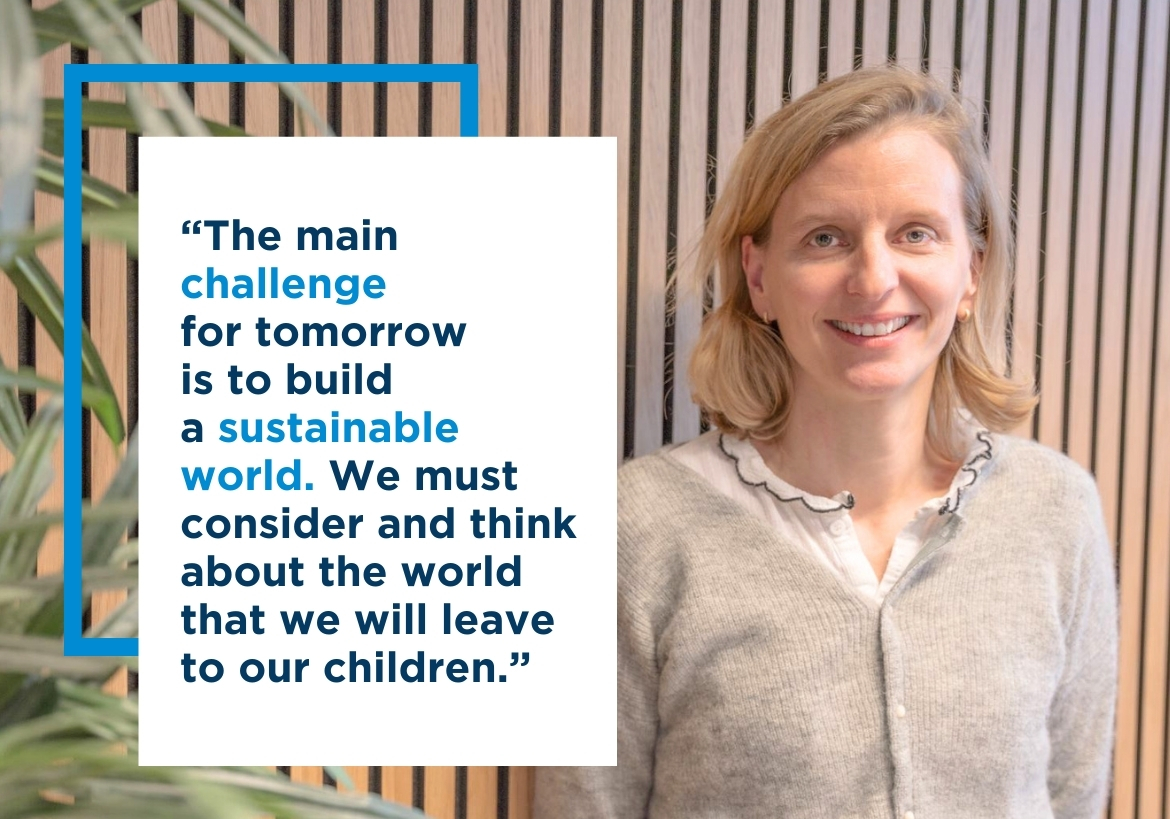
What does Building Tomorrow’s World Today mean to you? How do you see this concept playing out in the context of engineering and innovation?
The main challenge for tomorrow is to build a sustainable world. We must consider and think about the world that we will leave to our children, how we will reduce our waste, build the transportation of tomorrow. These are big challenges for the future of innovation, but it is a very interesting subject.
How can engineering contribute to a more sustainable, equitable, and prosperous future?
Paradoxically, there are cases where innovation contributes to overconsumption: if a brand-new television comes onto the market, people want to buy it and throw away the old one even if it’s still working. The solution is clearly to consume less, but better. Engineering will have to contribute to this by innovating in terms of recycling, but also by finding a solution in terms of energy. Innovations in IT will focus on green cloud computing to reduce the CO2 footprint of the IT industry. Computer-related pollution is considered to be one of the most harmful, more so even so than pollution created by the commercial aviation industry. New technological research and development will be needed to reduce the ecological impact of IT.
Which emerging technologies and trends will have the greatest impact on future engineering projects?
Of course, the most talked-about technology to emerge is AI. It will revolutionize a lot of things we are doing today. For example, in medicine AI will reshape how the healthcare sector works, enabling us to detect diseases more quickly and to have better monitoring of patients. There is a company that has managed to present a health monitoring system based on examining selfies. It is exciting projects like these that I would like to work on.
How can we encourage more women to pursue engineering education and careers?
Few people know that women were among the first programmers in the early 20th century. The first algorithm intended to be executed by a computer was designed by a woman, Ada Lovelace. Since the late 20th century, the number of women in computing has decreased. The reason for this decline has been studied, but no formal explanations have been established. In the 2000s, women held leadership roles in multiple tech companies, such as Meg Cushing Whitman, President and Chief Executive Officer (CEO) of Hewlett Packard Enterprise and Marissa Mayer, President and CEO of Yahoo! as well as key spokesperson at Google. These examples show that we need to do more to encourage women to gain self-confidence, because they have all the skills needed to become engineers.
Write the story with us!



